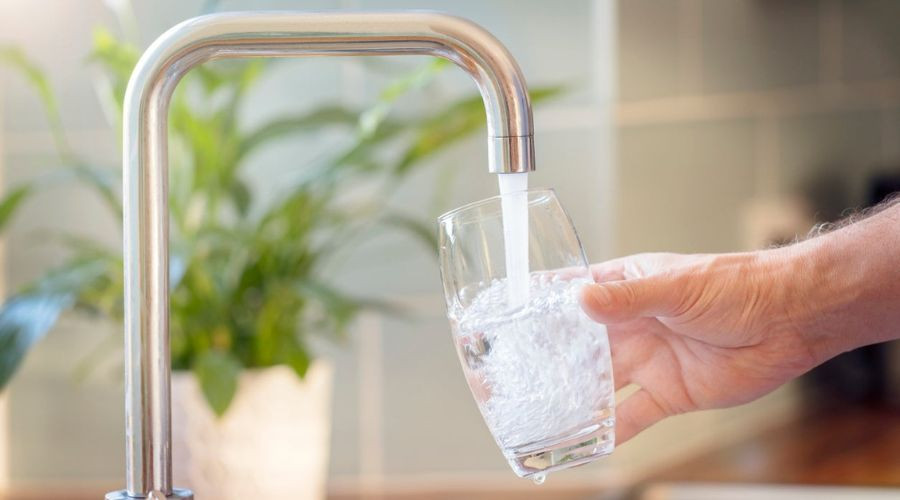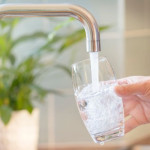What Is Hard Water?
As water goes through the water cycle, the last place it ends up before it is treated and piped to home is in a reservoir or aquifer. The journey that water takes to get there allows it to pick up ions in the soil and bedrock in a region. This gives each water supply a unique mineral profile that accounts for differences in taste and other characteristics.
One downside of having water laden with minerals is that the ions can contribute to hard water. Hard water contains a high load of calcium and magnesium. When these minerals are present in water, they impede the ability of water to do some of the things that society relies on it to do. Removing these ions from the water is the job of a water softener. This article is a quick discussion about how a water softener works and why installing a whole-home water softener is probably a healthy choice for the home.
How Exactly Does a Water Softener Work?
 Since the ions that contribute to hard water come from the bedrock in a region, water laden with minerals is called “hard.” A water softener “softens” water by removing these minerals. The best way to achieve soft water in a home or business is to use a whole-home water softener that removes minerals from the water at the source where water enters the home.
Since the ions that contribute to hard water come from the bedrock in a region, water laden with minerals is called “hard.” A water softener “softens” water by removing these minerals. The best way to achieve soft water in a home or business is to use a whole-home water softener that removes minerals from the water at the source where water enters the home.
A whole-home water softener is installed where water enters a home or business. All of the water that flows through the plumbing has its ions removed. The first stop for the hard water is in a large tank filled with resin. This special reason attracts the calcium and magnesium ions and binds them up. As water flows through the resin bed, more ions are captured so that it is softened as soon as water enters the piping in a home. Water softeners must periodically remove the buildup of ions in the resin so they automatically flush themselves with a strong saline solution, and the process starts over again.
How to Tell When Hard Water Is Present in a Plumbing System
 The signs of hard water are usually evident by recognizing the drawbacks of dealing with hard water. Hard water can cause several problems like:
The signs of hard water are usually evident by recognizing the drawbacks of dealing with hard water. Hard water can cause several problems like:
- Spotted glasses in the dishwasher
- Faded clothes after just a few washing cycles
- Dry hair and skin resulting from hard water’s inability to remove soap residue and grime
- Crusty, white buildup on plumbing fixtures
- Problems with water pressure
- Corrosion in a plumbing system
Whole-Home Water Softener Benefits
Removing the minerals from water is a great step towards unleashing the potential of water. By removing ions from water, the water can more adequately remove contamination when clothing and dishes are washed. Soft water is also better for hair and skin because it can rinse away grime more effectively. Finally, soft water is better for plumbing because it prevents minerals from causing corrosion in water heaters and piping. A whole-home water softener is a great place to start for owners looking to enjoy their water more fully.
About City Plumbing
City Plumbing is ready to answer questions about water quality and water softeners. Their experienced teams can find water quality solutions for any home. Call today for plumbing service in Philadelphia, PA.


























